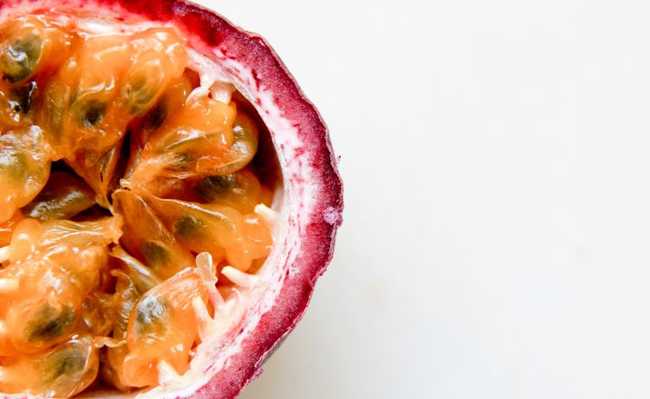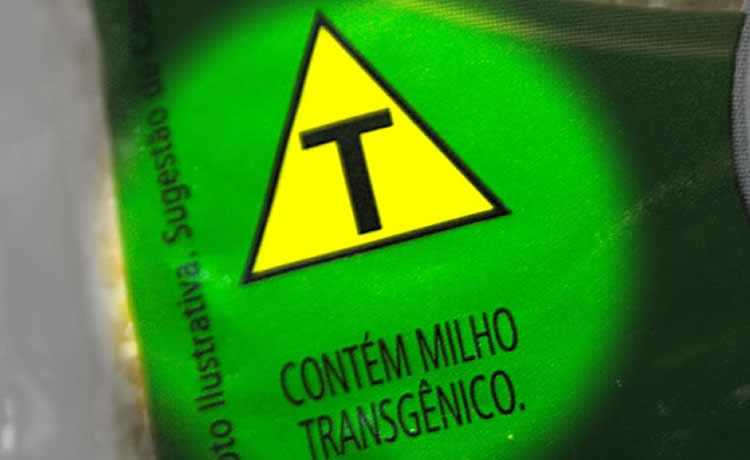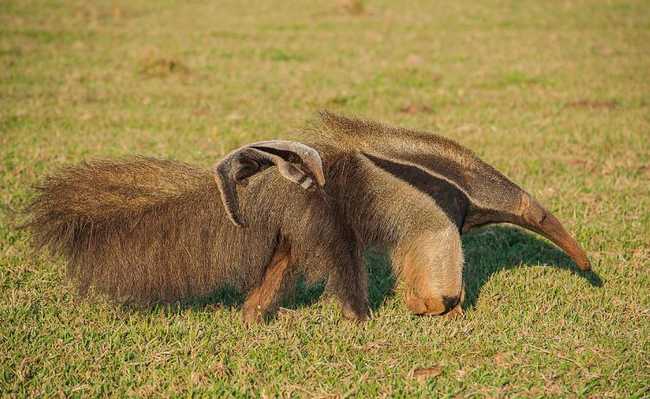Passion fruit seed oil treats oily hair and soothes the skin
Passion fruit seed oil helps with relaxation and has antioxidant, anti-inflammatory, moisturizing and even anti-dandruff properties.

Image: Glen Carrie on Unsplash
Passion fruit is the fruit of the passion fruit, originating in the tropical and subtropical regions of the American continent - there are more than 150 species used for human consumption. Brazil leads the world production of passion fruit, being the most cultivated species in the national territory the yellow passion fruit (Passiflora edulis f. flavicarp), the purple passion fruit (Passiflora edulis) and the sweet passion fruit (Alata passionflower) - the yellow passion fruit corresponds to about 95% of the national production. Most of the production is destined for the production of juices from the pulp. Passion fruit seeds used to be considered waste and were discarded, but it is possible to use this part for the extraction of passion fruit seed oil.
- Passionflower: the passion fruit plant has tranquilizing, anxiolytic and antidepressant effects
- Passion fruit seed is good for your health
extraction process
The oil present in the passion fruit seed can be extracted through the cold pressing process. This process consists of pressing the seeds, without temperature variation, extracting the oil through the physical process, avoiding the degradation of the compounds present there.
The seeds are obtained after the pulp extraction process, carried out in industries that are interested in the production, mainly, of juices. After extracting the pulp, the passion fruit seeds are washed, undergoing a thermal treatment, and then dried. Once dry, they can have two applications: production of passion fruit seed oil or use in food and feed.
After pressing, two products are produced: the extracted oil, which is refined and ready for its pure commercialization or use in cosmetics, and the pie, a solid material rich in fibers and which can be used as an ingredient for animal feed.
properties
Passion fruit seed oil, after filtering and refining, has a yellowish color and a very characteristic odor. It has in its composition a high content of unsaturated fatty acids (87%), being predominant in this group linoleic acid (also known as omega 6, which represents 68% of unsaturated fatty acids), followed by oleic acid (known as omega 9 , 18%), palmitic acid (12%) and stearic, myristic and linolenic acids (less than 1% of each). In addition to unsaturated fatty acids, passion fruit seed oil has saturated fatty acids, minerals and vitamins A and C.
Due to its composition, the oil extracted from the passion fruit seed has some properties that allow its application in cosmetics and even in dermatological treatments. Among its properties are:
- Flavoring;
- Anti-inflammatory;
- Antioxidant;
- Antiseptic;
- Anti dandruff;
- Soothing;
- Healing;
- Emollient;
- Moisturizer.
Because of these properties, passion fruit seed oil can be applied neat or in cosmetics to benefit the skin and hair, in addition to having a pleasant aroma.
Applications of passion fruit seed oil
Skin
The oil can be applied to the skin and acts as a moisturizer, emollient, refreshing and also contributes to healing, causing a calming effect.
Hair
When applied to the hair, passion fruit seed oil can be used to combat dandruff and contribute to the treatment of oily hair.
Relaxation
The oil's aroma is pleasant, caused by passiflorin, and helps to reduce anxiety, improve sleep, reduce stress and fatigue in general.
When using passion fruit seed oil, make sure that the product is 100% natural and pure, free of compounds that can be harmful to health, such as parabens, applied in order to increase the product's lifespan. .To have access to different types of vegetable oils and other products, visit eCycle store.










